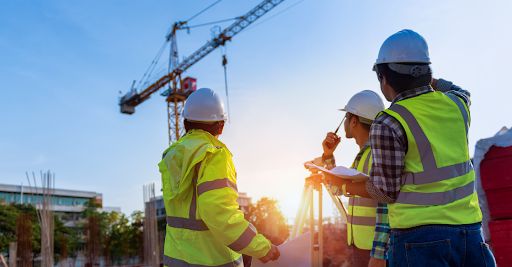
Albuquerque, New Mexico's largest city, offers a vibrant landscape for commercial construction projects. The city's growing economy, coupled with its cultural richness, makes it an attractive place for developers and businesses alike. However, navigating the regulatory framework governing commercial construction in Albuquerque requires a comprehensive understanding of various local ordinances, state laws, and specific regulations that impact building projects. This article aims to guide developers and contractors through the crucial aspects of these regulations.
1. Planning and Zoning Regulations
The City of Albuquerque has established specific zoning laws to manage land use and development. These laws are outlined in the Integrated Development Ordinance (IDO), which serves as the primary regulatory document for development within city limits. The IDO stipulates zoning codes that determine what types of buildings and activities can occur in particular areas. For example, sectors zoned as MX-L (Mixed-Use Low Intensity) are suitable for low-intensity commercial uses, whereas MX-H (Mixed-Use High Intensity) zones can accommodate high-density commercial buildings.
Before initiating any construction project, developers must consult the IDO to ensure their project complies with the zoning requirements of the specific location. It’s also advisable to engage with the Planning Department early in the project to address any zoning concerns and obtain necessary conditional uses or variances.
2. Building Permits and Inspections
The City of Albuquerque requires that all commercial contractors in Albuquerque obtain relevant building permits before construction begins. The process involves submitting detailed plans that comply with local building codes, including structural safety, fire protection, accessibility, and energy efficiency standards. The Albuquerque Building Safety Division is responsible for reviewing these plans and issuing permits.
Once a project has received the necessary permits, construction can commence. However, various stages of construction require inspections to ensure compliance with the approved plans and building codes. These inspections are crucial as they address potential safety hazards and ensure that all aspects of the building conform to the stringent standards set forth by the city.
3. Environmental Regulations
Albuquerque places a strong emphasis on environmental sustainability and conservation. The Environmental Planning Commission (EPC) plays a vital role in overseeing environmental impact assessments and ensuring that new construction projects adhere to environmental standards. This includes regulations related to water use, waste management, air quality, and land use, all crucial in preserving Albuquerque's unique landscapes and resources.
Developers must consider these environmental guidelines from the early planning stages. Projects often require specific mitigation strategies if they potentially impact local ecosystems, water resources, or have significant energy consumption footprints.
4. Accessibility Requirements
Compliance with the Americans with Disabilities Act (ADA) is mandatory for all commercial construction projects. This federal regulation ensures that buildings are accessible to people with disabilities. In Albuquerque, local building codes integrate ADA requirements, mandating features like accessible parking spaces, ramps, doorways, and restrooms.
The City of Albuquerque Building Safety Division is tasked with ensuring that all new commercial buildings meet these accessibility standards. Failure to comply with ADA requirements can lead to significant legal liabilities and delays in project completion.
5. Historical Preservation
Albuquerque is home to numerous historic sites and districts, protected under local and national historical preservation laws. Any commercial construction occurring near or within these districts must receive approval from the Albuquerque Landmarks Commission. This includes adhering to specific architectural standards that maintain the historical integrity of the area.
Developers must engage with the Landmarks Commission early in the planning process if their project is in proximity to a historical site. This ensures that new constructions respect Albuquerque’s rich history while accommodating modern development needs.
Conclusion
Navigating the regulatory framework for Albuquerque commercial contractors involves understanding a complex array of local ordinances, state laws, and federal regulations. For successful project execution, it is imperative for developers and builders to engage proactively with city departments, including the Planning Department and Building Safety Division. By ensuring compliance with these guidelines, developers can avoid costly delays and legal issues, contributing positively to Albuquerque's dynamic urban landscape.




